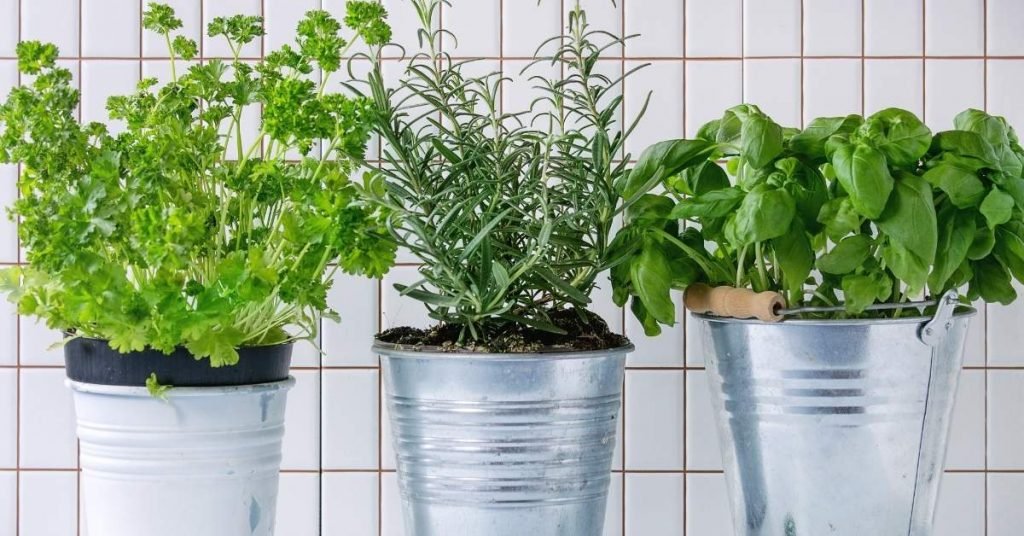Growing herbs in pots is an aromatic, therapeutic, and relaxing activity with multiple benefits.
People use herbs to add flavor to their food since time immemorial.
Fresh or dried, herbs and spices are an inevitable part of our lives, however, it seems that Western cultures are kind of forgetting about them.
Oregano on pizza is probably one of the few herbs known to the general public, and it’s time to look back to our ancestral knowledge and return to herbal medicine and spices that have so many benefits for human health.
Herbs are not only spices, herbs are also excellent for tea preparation or as an addition to already brewed teas.
Growing Your Own Herbs
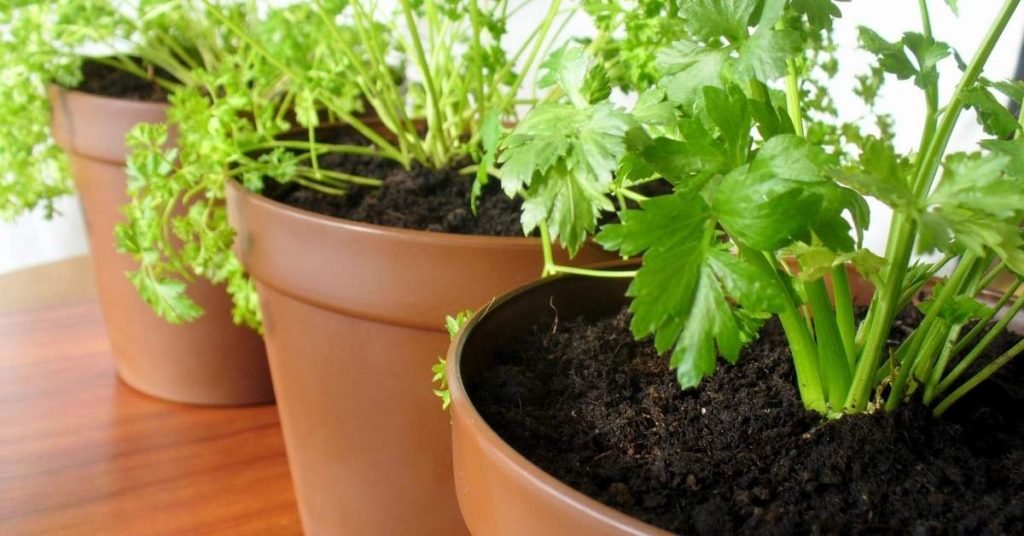
Let’s make it clear: growing herbs doesn’t mean you have to buy an acre of land, move out of the city, and grow herbs as a full-time job.
You can grow herbs in places as small as studio apartments, as soon you have some natural sunlight coming in, on your kitchen window, and even on a tiny balcony.
Growing Herbs in Pots
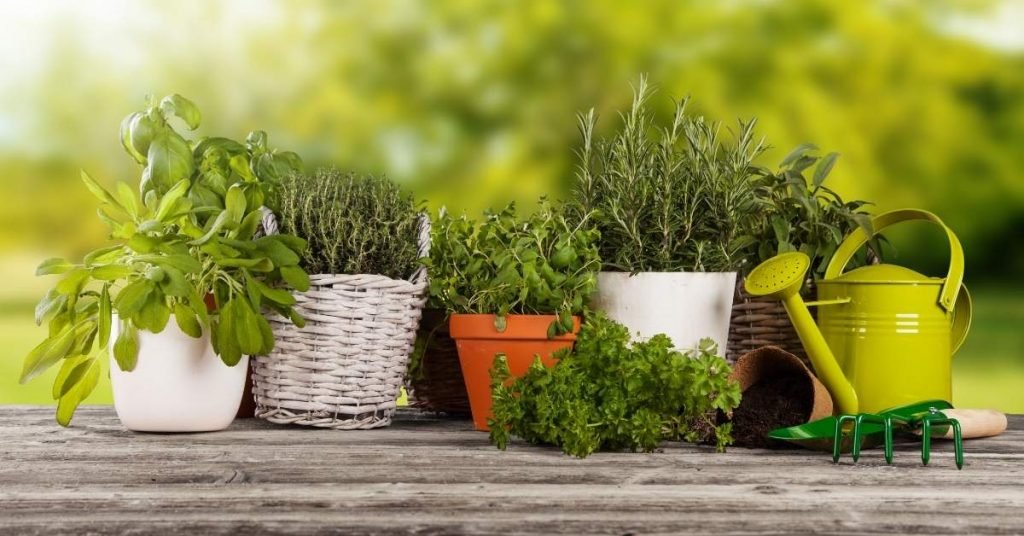
There’s no excuse for not doing it. Imagine having fresh basil leaves for your pasta dish at all times or adding fresh rosemary to your grilles salmon, sounds delicious, right?
Instead of eating tasteless food or buying spices, start purchasing seeds.
You can cultivate your herbs even in tiny flower pots, label them, and place them on your kitchen window in winter, and on your balcony during the summer.
Even if you don’t have green fingers and you’ve never been gardening before, growing herbs in pots is way too easy to back off this idea. Even kids can do it.
First, you need to decide what are your favorite herbs and if they’re available in your country.
After purchasing the seeds, you can buy pots that fit your window or any other space where you’re planning your tiny “garden.” Logically, you have to fill your pots with nutrient-rich potting soil for your seeds to germinate with success, so buy a bag of loose and fluffy soil.
After filling up the pots and placing them in their spots, make an inch-deep hole in the soil, place your seeds and cover with a thin layer of soil. Sprinkle water on top and let the seeds germinate.
Best Herbs for Pot Growing
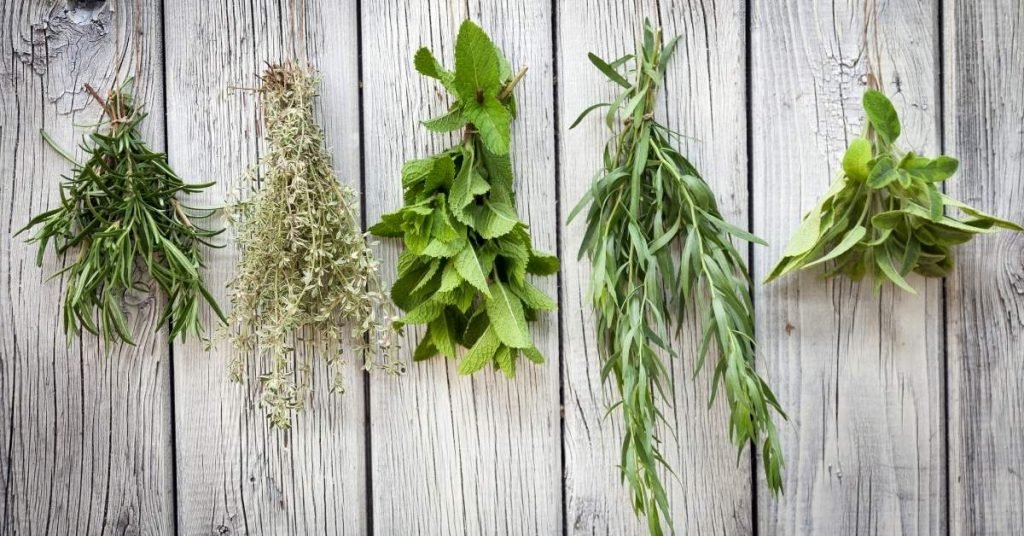
We’ll give you some ideas on which herbs are best and easiest for pot growing and require little or no care.
Oregano, basil, rosemary, thyme, lemon balm, dill, cilantro, sage, mint, parsley, and marjoram are the most common herbs to grow in pots and used as food condiments or tea brewing.
Although most of these are used in the culinary world, they are actually an excellent source of nutrients that you can add to your teas.
All of these herbs are packed with antioxidants, antiseptic, and antiviral properties that you can use in treating various conditions such as indigestion, stomach cramps, oral infections, hypertension, heartburn, and other everyday health issues.
The information presented on this site is provided for information purposes only. It is not meant to substitute for medical advice or diagnosis provided by your physician or other medical professionals. Do not use this information to diagnose, treat, or cure any illness or health condition. If you have or suspect that you have a medical problem, contact your physician or healthcare provider.
Can I Use My Herbs to Prepare Teas?
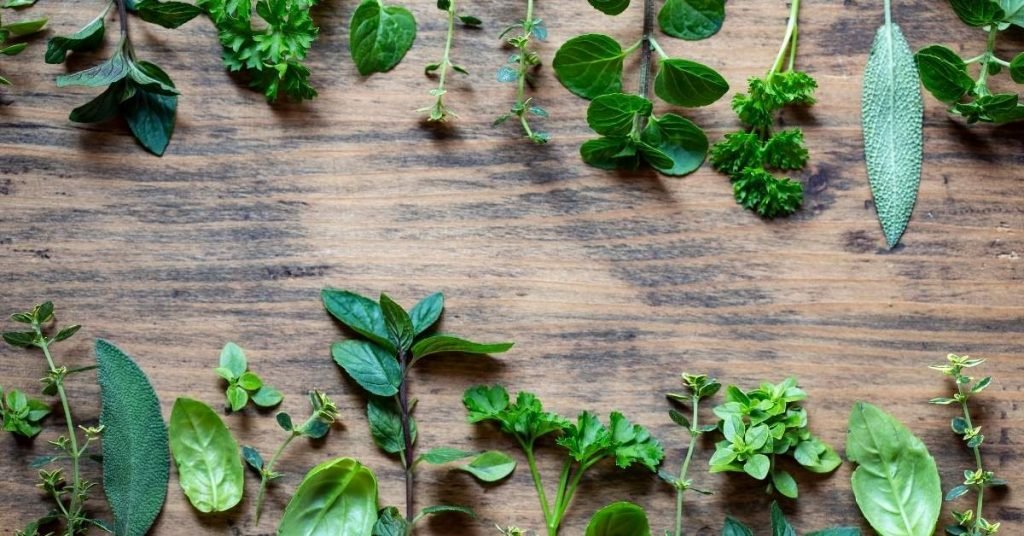
Absolutely, yes! By pouring boiling water over a handful of any of these herbs and letting it steep for a few minutes, you will get an aromatic infusion that you can drink with a splash of lemon juice, honey, or even fresh berries if you’re making an iced tea.
What Are the Main Health Benefits of Herbs?
Each herb is packed with minerals, vitamins, essential oils, and nutrients that improve human health when brewed. Here we’ll share the main properties of each of the above mentioned herbs.
- Oregano – antimicrobial, antiviral, and antifungal
- Basil – anti-inflammatory and antibacterial
- Rosemary – anti-oxidant, antimicrobial, anti-tumorigenic, anti-inflammatory, anti-apoptotic, neuroprotective, and antinociceptive
- Thyme – antibacterial and antifungal
- Lemon balm – stress reliever, pain killer
- Dill weed – anti-inflammatory and antiviral
- Cilantro – antimicrobial and anti-inflammatory
- Sage – antioxidant
- Mint – antiseptic, antiviral, anti-inflammatory
- Parsley – diuretic, antibacterial, antioxidant
- Marjoram – anti-inflammatory, antimicrobial, and antioxidant
Final Word
Growing herbs in pots is easy, fun, relaxing, and it is an excellent nerve-soothing therapy for stressed people.
Herbs are not only an excellent addition to almost all dishes but they are even better when prepared as teas.
Having herbal tea in the morning or before going to bed will boost your immune system, keep viruses and bacterial infections away, and improve your mood.
Herbs are easy to grow and take care of and they provide an irresistible flavor to your infusions and dishes.
MEDICAL DISCLAIMER
Itsnevernotteatime.com cannot and does not contain medical/health advice. The medical/health information is provided for general and educational purposes only and is not a substitute for professional advice.
